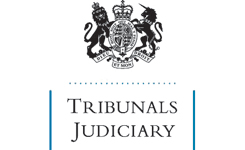|
Notes:
|
Reported as [2011] AACR 22.
Tribunal procedure – enforcement references – penalties
CB had appealed to the First-tier Tribunal against parts of the statement of special educational needs in respect of her son. She wished her son to attend a particular independent school. The headmaster of that school had signed a statement for the tribunal confirming the offer of a place and providing an assurance that it would be held open for a defined period. The tribunal decided to adjourn the appeal hearing and issue a witness summons under rule 16 of the Tribunal Procedure (First-tier Tribunal) (Health, Education and Social Care Chamber) Rules 2008 (the HESC Rules) for the attendance of the headmaster at the next hearing of the appeal. The headmaster indicated to the local authority that he would not attend the hearing or allow a member of staff to attend, “sub-poenaed or not”, and on receipt of the witness summons, replied stating that it was the school’s policy not to attend tribunal hearings. He indicated that he was willing to answer questions in writing and threatened to withdraw the offer of a place if that was not sufficient. A tribunal judge treated the letter as an application to set aside the witness summons but refused the application. One day before the hearing the headmaster withdrew the offer. He made some attempts to obtain information by telephone about challenging the summons but did not make any application and did not attend the hearing. The First-tier Tribunal adjourned the hearing again, and referred his non-attendance to the Upper Tribunal under rule 7 of the HESC Rules. Section 25 of the Tribunals, Courts and Enforcement Act 2007 confers on the Upper Tribunal in England and Wales and in Northern Ireland the same powers, rights, privileges and authority as the High Court and in Scotland, the same powers, rights, privileges and authority as the Court of Session, in relation to, inter alia, the attendance and examination of witnesses.
Held, imposing a penalty, that:
1. the issue was whether the headmaster’s non-attendance should be punished as a contempt of court, as would be the issue for the High Court, but it was not necessary to apply the specific procedural provisions that would apply in the High Court, and the impact of those provisions was be confined to that Court. In passing the 2007 Act, Parliament was intending to confer upon the Tribunal Procedure Committee the power to make the necessary provisions to regulate the issuing of witness summonses by the First-tier Tribunal and the conduct of references to the Upper Tribunal (paragraph 22);
2. the present case differed from MD v Secretary of State for Work and Pensions [2010] UKUT 202 (AAC); [2011] AACR 5 in that the summons was properly addressed, gave details of the hearing, gave the requisite notice, indicated the right to apply to have the summons set aside or varied and stated the consequences of failure to comply, all as required by rule 16 of the HESC Rules (paragraph 23);
3. the Tribunals Service scheme of allowances for witnesses was sufficiently compliant with rule 16(2)(b) and MD should not be understood as suggesting that a doctor is entitled to be recompensed for that financial loss. Rather, the potential for financial detriment to a doctor (and possibly others) in attending is a relevant factor to the tribunal’s decision whether to issue a witness summons in the first place (paragraph 24);
4. a witness summons issued by the First-tier Tribunal is to be complied with, unless and until it has been set aside or varied by the First-tier Tribunal under rule 16(4) or set aside by the Upper Tribunal on an application for judicial review. The person on whom a witness summons is served is not a party and does not have any right of appeal to the Upper Tribunal under section 11(2), but may apply for permission for judicial review, which can be considered by the Upper Tribunal urgently where necessary (paragraphs 26 to 28).
5. tribunals should always consider alternatives to personal attendance available to them under relevant Tribunal Procedure Rules but there will be cases where requiring the attendance of a witness is appropriate. As with other case management decisions, provided that relevant factors (examples of which are given) have been considered, the Upper Tribunal will be reluctant to set aside a witness summons in the exercise of its judicial review jurisdiction (paragraph 29);
6. the headmaster could not rely on his own act in purportedly withdrawing the offer of a place to defeat the materiality of his evidence and it is for the tribunal, not the person summoned, to determine whether attendance is necessary (paragraph 30).
The judges ordered the headmaster to pay a fine of £500.
|
